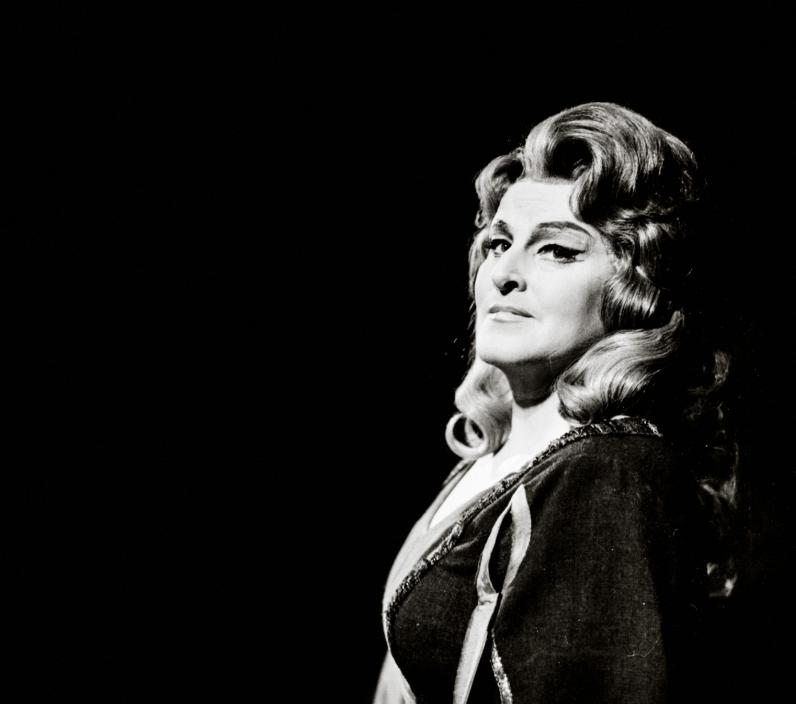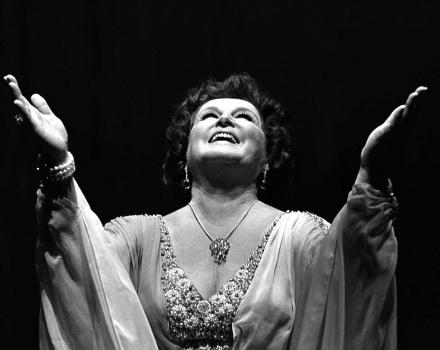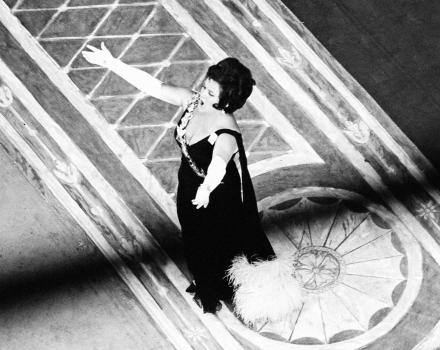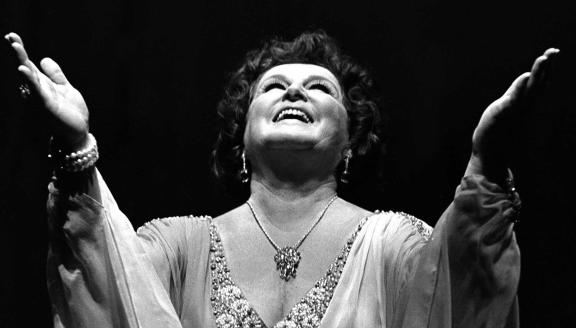

Birgit Nilsson 100 Year Anniversary Concert

The Royal Swedish Opera commemorates one of the greatest sopranos of all times, Birgit Nilsson. In a unique concert, an all-star cast takes to the stage celebrating the centennial of 'La Nilsson'.
Cast
Sopranos | Nina Stemme |
|---|---|
Tenor | Michael Weinius |
Sopranos | Cornelia Beskow |
Sopranos | Christina Nilsson |
Orchestra | Royal Swedish Orchestra |
| ... | |
Conductor | Alan Gilbert |
|---|---|
| ... | |
Video
The story
Programme
Birgit Nilsson and the Royal Swedish Opera have strived in unison. Following her debut in 1946 and her success as Agathe in Weber’s Der Freischütz and Lady Macbeth in Verdi’s Macbeth, the world became her stage. At the same time, she regularly returned to sing in Stockholm. The Royal Swedish Opera saw her perform no less than 35 roles, of which many of the first time. Her last appearance there was as Brünnhilde in Wagner’s Die Walküre in 1981.
Richard Wagner
TANNHÄUSER
Overture
Dich teure Halle, Christina Nilsson
Carl Maria von Weber
DER FRIESCHÜTZ
Agathes Wie nahte mir der Schlummer... Leise, leise, Cornelia Beskow
Richard Wagner
DIE WALKÜRE
Winterstürme wichen dem Wonnemond
Du bist der Lenz & Wehwalt heist… Michael Weinius, Cornelia Beskow
Giacomo Puccini
TURANDOT
In questa reggia, Christina Nilsson
-- INTERVAL --
Giacomo Puccini
TOSCA
Vissi d’arte, Nina Stemme
E lucevan le stelle, Michael Weinius
Giuseppe Verdi
AIDA
O Patria mia, Christina Nilsson
Richard Wagner
GÖTTERDÄMMERUNG
Siegfrieds Rheinfahrt, Nina Stemme
Starke Scheite, Nina Stemme
Insights
The phenomenon that was Birgit Nilsson
Birgit Nilsson was indisputably the outstanding dramatic soprano of the second half of the 20th century. Her top notes had an unequalled power and brilliance. Her personality commanded the stage. At the height of her fame, she was paid more than any other opera singer, and she was worth it.
Yet, at heart, she remained a simple farmer’s daughter, who loved animals and living close to the earth of her native Skåne in southern Sweden. She was famously matter-of-fact with a down-to-earth sense of humour. Asked for the secret of singing Isolde, her most famous role, she replied: ‘a comfortable pair of shoes’.
The scale of her voice ensured that she will be especially remembered for her Wagner roles (above all Brünnhilde in The Ring and title-role in Isolde), and for Richard Strauss (notably Elektra and the Dyer’s Wife in Die Frau ohne Schatten). But she also shone as Mozart’s Donna Anna and Beethoven’s Fidelio, as well as the great dramatic roles of the Italian repertory such as Lady Macbeth, Aida, Tosca and Turandot.
Nilsson described Turandot as her ‘money role’. It is short, and its high-lying declamation held no terrors for her. At the end of Act 2, against the full might of an enlarged chorus and orchestra, her voice rode effortlessly over the whole ensemble to devastating effect.
Despite her international career, Nilsson remained loyal to the Royal Swedish Opera, which provided her first opportunities and where she sang 35 different roles between her debut in 1946 and her retirement in 1984. It is fitting that the 100th anniversary of her birth should be celebrated in that beautiful and historic theatre and that one of the singers taking part in this tribute should be her compatriot Nina Stemme, who is acknowledged to be the leading Isolde of the 21st century.
Gallery





